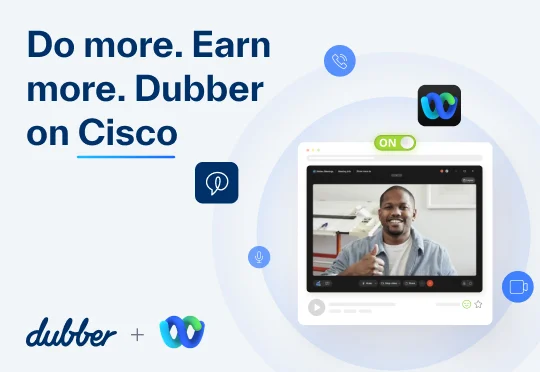
How Cisco partners unlock differentiation & revenue with Compliant Video recording on Webex Meetings
Compliant video recording is now available on Webex Meetings. Simple & easy upgrade for Dubber Go users!
80% of all critical business conversations are voice and video. This is one of the many compelling reasons why Dubber on Webex Meetings is meaningful to new and existing Dubber plus Cisco customers – enabling the capture and unification of voice calling data and video for the first time on Cisco platforms.
Dive deeper into the power of Dubber on Cisco
We’ll be running global webinars over the next couple of weeks, covering all the exciting integration details and much more for partners. To register, simply click here. For more information about Dubber on Webex Meetings, click here.
What does this mean for customers?
Individuals, Businesses, and Government users with regulatory compliance mandates to record and store every voice and video communications can now securely capture all audio calls, one-to-one video conversations and multi-party video conferences with Dubber on Webex Meetings. By simply including the video add-on pack (up to 100GB storage) for just $25 (USD) per user per month on your Dubber solution plan, all video recordings and data are automagically stored, easily searchable and will have the full complement of Dubber services available.
Critically with Dubber on Webex Meetings, compliant recordings are achievable with automated policy-based recording. Ensure proactive compliance and risk visibility with AI-enriched insights, alerts, search and sentiment analysis.
While some UC solutions include call or video recording solutions, they are limited in capturing, authorising, managing, and facilitating compliant call recording. And the costs for storage and lack of any intelligence delivered from the recording limit their use.
For Cisco Webex Meetings customers unifying voice calling and video recordings in the Dubber, Voice Intelligence Cloud unlocks limitless use cases possibilities, especially as demand grows for customer dispute resolution, customer experience, telehealth, HR, remote inspections and customer support based services.
The first six months of video recording on us!
For a limited time, all Webex Meetings Dubber Premier subscription plans will get the video add-on pack free for 6months with every 12-month subscription! Easily capture video recordings and data revealing instant insights, analytics, transcriptions, sentiment and tone analysis, with all Dubber’s platform capabilities unleashed.
And don’t forget, Dubber free and personal call recording is available as an embedded standard feature for Cisco Webex Calling and Cisco Unified Communications Manager Cloud (UCM). Enabling Dubber Go customers simple and easy upgrade to record every call and video across all major cisco platforms. With the expansion of the partnership, Dubber is now the most complete unified conversational recording solution on Cisco.
What does this mean for Cisco Partners?
The expanded Dubber offering for Cisco partners and Dubber resellers affirms Dubber as the most complete recording solution on all major Cisco platforms. In addition to Dubber being the embedded cloud call recording solution for Webex Calling and UCM-Cloud, partners can tap into the rapidly growing demand for hybrid work enabled solutions and voice data intelligence.
“Today’s announcement expands Dubber’s strategic offering on CIsco, video communications and compliant video recording are fundamental to every business in a hybrid work environment,” said Russell Evans, CRO, Dubber. “For Cisco Partners this is an incredible opportunity to increase differentiation and revenue by making the critical shift from selling connections to creating solutions based on the value of the rich content in conversations.”
For Cisco partners and resellers, ordering is simple, Dubber on Webex Meetings is available on CCW, the Cisco AppHub or from Dubber directly.
Chat with us about doing more with every conversation
To chat to a Dubber on Cisco specialist about getting your customer, team or organization set up today, reach out here. Also, make sure to register to become a Dubber on Cisco partner today and get access to partner incentives, market development funds and much more.
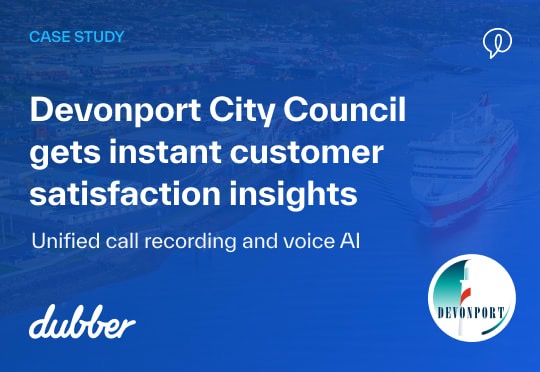
“What’s our customer satisfaction right now?”
Devonport City Council turned to Dubber’s call recording and voice AI to get insights to improve staff training, boost customer service, and track customer satisfaction on every call.
Here’s the backstory
Devonport City Council found Dubber when it needed help understanding customer satisfaction.
The council serves a city of 26,000 people on Tasmania’s north coast.
There’s a team of seven customer service staff who handle all the calls arriving at the council. They can deal with queries themselves or pass calls on to other council departments.
The team deals with a wide range of calls including parking, animal control, rates, and health matters. It also handles calls from developers and builders, along with requests for services such as fixing potholes in local roads.
Customer Services Coordinator Danielle Harvey says the council wanted to know if callers were happy with the service they got, but didn’t want to ask them to stay on the line for an automated survey.
In the past without call recording, they only had anecdotal evidence of customer satisfaction. “We didn’t even have any statistics on how many calls a day we had. I couldn’t tell the busiest time of day or day of the week”
What was the solution?
The council uses Telstra’s IP telephony (TIPT) service and asked the telco for help. It suggested Dubber, which is able to record every call then provide full analytics.
It took next to no time to set up Dubber to record all the council’s incoming calls. The council then added voice AI analytics to transcribe and measure the sentiment of every call.
What were the results?
Improved Staff Training
The council uses Dubber to improve staff training and the way calls are handled. Harvey says in the past training involved her sitting beside the team to hear their side of conversations. “When you are working alongside someone you might not hear their tone and manner. With Dubber I can sit in a quiet room, listen to both sides and hear the tone and manner. It’s very useful”.
Harvey takes a subtle approach with staff feedback. She says the customer service team are not keen on being recorded and do not like being told after a call what they should have said.
Instead, she listens to a select number of calls each week and, based on what she hears, makes general suggestions to all staff members during meetings.
She says: “I simply say something like: did you realise we have these parking permits? If anyone asks about parking you can give them this information.”
At the same time, she asks staff to identify calls they think she should listen to. This can be when someone asks a difficult question or maybe when the caller feels they didn’t get a full enough answer. Harvey can simply and quickly search for the call using a phone number.
“Dubber has been the next level for customer service performance and we now have more structure in our training. Dubber is filling in the gaps in knowledge”.
Feedback for other departments
One area where she found Dubber helpful is with setting up questions for data collection. A council department might give the customer service team a series of questions to ask callers to gather more information. In cases, the customer service team understands these might not be the best questions.
By being able to go back to the departments with recordings of calls, they are able to identify where they might improve their questions to get the right answers from callers.
Customer Satisfaction Monitoring
The sentiment rating instantly measures if a call is happy, unhappy or neutral and quickly gives pointers to the calls that may need closer examination. Transcripts are helpful for a quick overview, because listening to recordings takes more time. Harvey says she also finds transcripts handy when it comes to sharing information with other council managers.
The council’s next step will be using Dubber’s automation and sentiment analysis to set up dashboards. That way managers can log-in and get an instant overview of customer satisfaction. They can see how customers are responding, how many calls are coming in, and how long each call takes.
Like to Learn More?
Overview
One of Switzerland’s largest private banks required a secure and compliant solution that enabled the proactive recording, capture and analysis of mobile phone calls between financial advisers, traders and clients.
The Private Bank’s Chief Risk Officer (CRO) says the business had efficiency issues. “We used to have an extremely manual process of listening to recorded calls to identify breaches”.
The bank had an imperative to mitigate against potential surveillance breaches, whilst maintaining employee productivity, aligned with positive customer experience. “Any compliance breaches had the potential to leave us open to regulatory fines”, they said.
The Swiss Private Bank had a recording system in place, but staff wasted huge amounts of time locating, manually transcribing and analysing phone calls.
The customer selected Dubber to record and transcribe mobile phone calls and messages, with the real-time Search function allowing them to save time on filtering and finding specific compliance issues. The solution also enabled a more positive customer experience, driving employee culture through an AI driven sentiment and tonal analysis engine of every customer interaction.
Once installed the CRO said the team instantly became more efficient. They said, “The time and costs saved with Dubber, along with the compliance benefits have gone beyond expectations”.
The Swiss Private Bank is now recording and automatically transcribing calls in six languages and has since implemented Dubber Voice AI to enhance proactive compliance. Dubber automatically detects the language being spoken during the first few seconds of the call.
Alerts and notifications for keywords and phrases spoken in client conversations have provided the Bank with an additional layer of security leaving them confident that breaches will be identified immediately.

The Challenge
- Manual and in-efficient process of listening to recorded calls and messages between wealth managers and clients
- Their legacy system recorded calls, but the lack of a search function meant users couldn’t locate specific phone calls, meaning breaches could be missed
- No automated transcriptions – their manual workaround was slow, ad-hoc and expensive
The solution
- Dubber Snified Call Recording to deployed enable call and message capture
- Real-time search and auto-transcriptions allows users to easily locate specific calls and conversations in seconds
- Proactive surveillance for the identification of rogue operator conversations with alerts and notifications on keywords such as “You should buy ”, or suggesting the call continue on a non recorded communication platform
- Auto language technology, transcription of six languages with sentiment and tonal analysis, transforming unstructured communications data into actionable intelligence that drive business insight
The Results
Meet Compliance Requirements
- 100% visibility of wealth manager-client conversations
- Better enforcement of surveillance and risk management protocols
- Immediate escalation of potential compliance breaches
More Efficient
- Replaced manual listening and transcription process
- Sentiment and tone analysis of all calls, improving customer experience and managing employee culture
Surveillance
- Proactive alerts of keywords from recorded calls
- 100s of thousands saved in manual transcription costs
We now have total visibility of all our traders’ conversations, even when they’re working from home. The automated surveillance means we can immediately identify compliance
breaches, reduce risk, and save time and money.
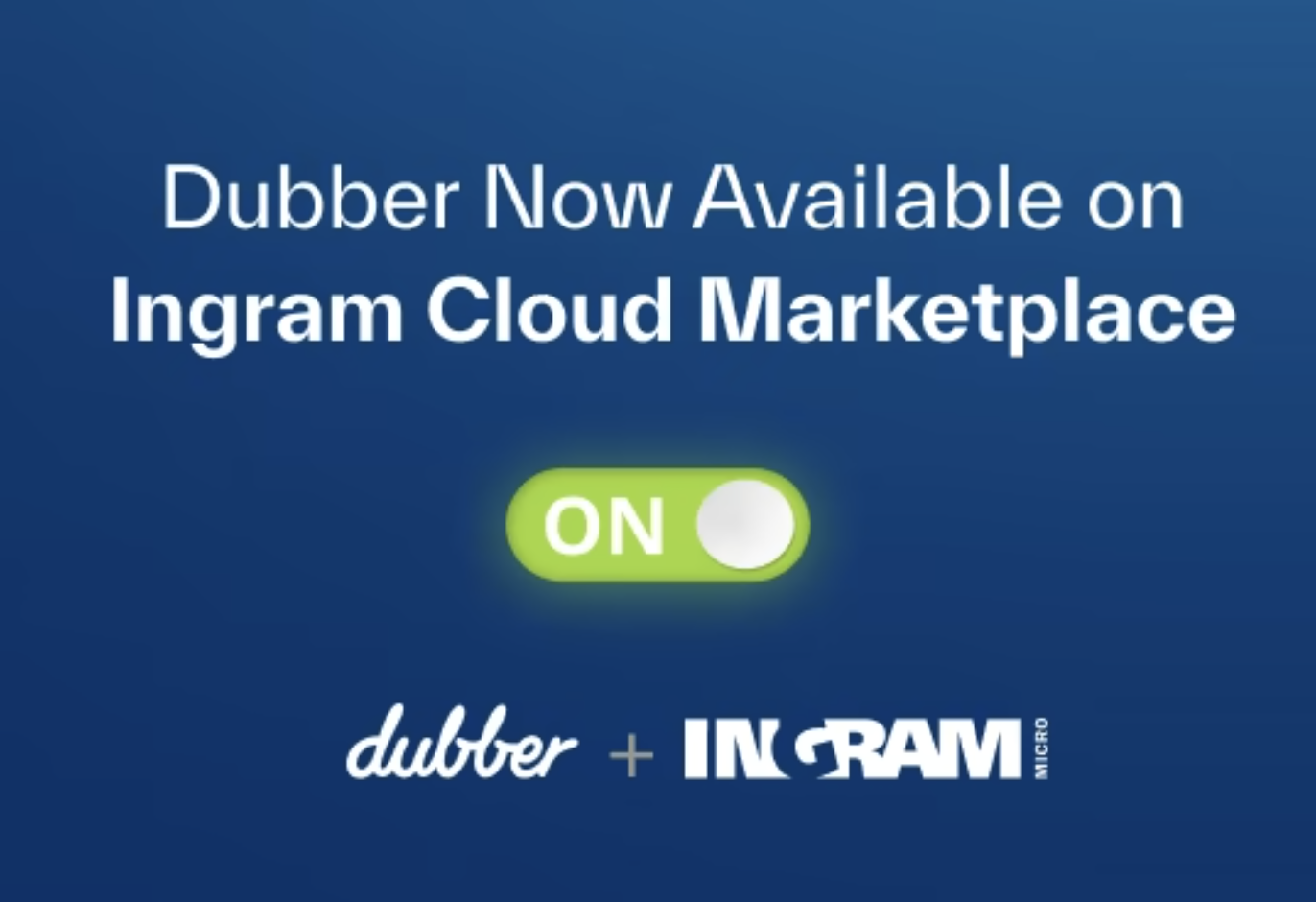
London, August 2021 – Ingram Micro, the leading global distributor of cloud-based IT products and services, today announced that Dubber, the world’s first and leading provider of cloud-based unified call recording and voice intelligence, is now available to all channel partners and resellers via the Ingram Micro Cloud Marketplace in Europe, Middle East and Africa.
Dubber’s unique value is in its ability to enable the secure cloud recording of voice calls and collaboration meetings from any device, location or collaboration platform – connecting directly at the network layer with over 150 service providers globally including BT, AT&T, Verizon, Telstra and O2, as well as collaboration platforms like Zoom Phone and Meetings, Cisco Webex Calling and Microsoft Teams.
Dubber’s AI-driven Voice Intelligence Cloud enriches voice data, generating business critical insights, real-time search, alerts, transcriptions and sentiment analysis – enabling businesses of any size to automatically record every call to meet compliance mandates; improve sales and service performance; and unlock the possibilities contained within voice data.
The availability of Dubber on the Ingram Micro Cloud Marketplace provides all channel partners and resellers an opportunity to differentiate their UC offerings to customers, with a uniquely scalable and quick-to-deploy solution that eliminates the cost, complexity and limitations of traditional legacy call recording solutions.
Dubber is one of the first recording platforms to be certified for compliance by Microsoft for integration directly into Microsoft Teams. Dubber also recently acquired Speik, the leading UK provider of mobile call recording and PCI payments solutions.
Ovi Gherghel, Cloud & Cyber Security Country Leader (UK&I) at Ingram Micro UK said: “The launch of Dubber on to the Ingram Cloud Marketplace couldn’t come at a better time for us and our partner community in the UK. As the world settles into hybrid remote-working, businesses need a compliant solution that can capture call recordings across networks and applications and support work from anywhere, at any time… Dubber can now fulfill that need.”
Simon Broadbent, VP Sales at Dubber said: “Gartner predicts that by 2025, 75% of conversations at work will be recorded, with many of those conversations taking place over service provider networks and collaboration platforms such as Microsoft Teams. All of Ingram Micro’s partner and reseller community will now be able to harness that market opportunity by integrating Dubber into their customer offering.”
Steve McGovern, CEO of Dubber, said: “There’s no doubt the 2020/21 pandemic has accelerated the adoption of communication technologies to keep up with the demands of virtual collaboration and hybrid work arrangements. Dubber allows regulated businesses to maintain compliance across traditional and remote-workforces, creating an invaluable addition to channel partners’ offerings.
About Ingram Micro:
Ingram Micro Cloud is a global division of Ingram Micro and employs more than 1,500 dedicated cloud specialists worldwide. Among this large pool of experts are 400+ cloud sales associates and 700+ engineers. Its innovative platform and services offerings power some of the world’s most pioneering and successful companies. As a premium cloud services provider, Ingram Micro Cloud views cloud as more than a single technology – it is a foundational platform capable of underpinning the digital transformation. For more information, please visit uk.ingrammicro.com.
About Dubber:
Dubber is unlocking the potential of voice data from any call or conversation. Dubber is the world’s most scalable Unified Call Recording service and Voice Intelligence Cloud adopted as core network infrastructure by multiple global leading telecommunications carriers in North America, Europe and Asia Pacific. Dubber allows service providers to offer call recording for compliance, business intelligence, sentiment analysis, AI and more on any phone. Dubber is a disruptive innovator in the multi-billion dollar call recording industry, its Software as a Service offering removes the need for on-premise hardware, applications or costly and limited storag

Corporate Governance Policies
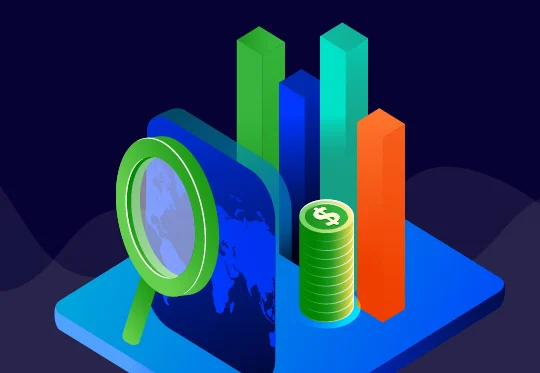
Open voice intelligence starts with either transforming legacy call recording and implementing unified call recording that transforms any and every conversation into data. From there the Voice Intelligence Cloud does the work – unifying conversational data sets and unlocking intelligence once lost at the end of every conversation – or in data silos and applications.
Traditionally, call recording was deployed as a necessary means to monitor agent performance, enable dispute resolution or enforce verbal agreements. Call recording was expensive, cumbersome and application-centric, which meant it was primarily adopted by enterprise contact centers and other places where only the most crucial of conversations occurred.
Application-centric call recording limits the capture of the broadest possible set of business conversations because it’s tied to a narrow set of devices/endpoints and specific application needs.
Often, less than 10% of crucial conversations are captured. The downstream impact is that essential data is lost, limiting broader data correlation and trapping data.
Modern call recording is cloud-based and deployed as SaaS.
The benefits of this for businesses include rapid deployment (deployed in minutes or hours, not months), significant cost reductions and the ability to capture, store and unify all business conversations, turning this into highly valuable data and insights for businesses.
This marks the start of open voice intelligence. Powered by API’s, data and insights are portable, easily federated to other business data, tools, systems and software.
Starting with Voice data.
Once companies capture all their crucial conversations and voice data, the requirement becomes to make the data accessible and portable in real-time.
For all this to work, you need to orchestrate and leverage APIs, to deliver scale in an automated manner. API’s federate the correct data and insights to the right system, with little to no human intervention, allowing automation and scale.
Automate and accelerate intelligence, accurately.
The Dubber platform is architectured around an open API, authorising companies to control, automate and self-serve, tailoring functionality and data outputs to fit and connect to specific platforms or software. Outcomes include:
- Revenue Intelligence: Port crucial conversational data with new prospects or existing customers, integrated into your CRM or sales revenue tools.
- Customer Intelligence: Good customer service and speedy dispute resolution is predicated on timeliness. Connecting the Dubber API to workflow tools based on spoken keyword triggers or phrases such as ‘I want to speak to your manager’. Solve disputes efficiently and focus on delivering outstanding customer service and experiences.
- People Intelligence: Knowing how your people are feeling and operating is critical to business success. Remote and hybrid workforce arrangements have only exacerbated the challenge of knowing. Capture conversations with sentiment and tone insights, all of which can be integrated into your people management tools to enable more tailored training or support needs.
One of the most popular ways Dubber customers are leveraging the API today is for:
- Business Intelligence: Connecting call recordings and data such as call volumes, categories (based on tags), alongside sentiment rating, tone and or keywords and phrases into data visualisation tools such as IBM Cognos, Tableau and Google Data Studio. Dubber customers are informing vital business decisions such as resourcing, increasing or decreasing marketing/promotional spend or making capital decisions based on products or services mentioned.
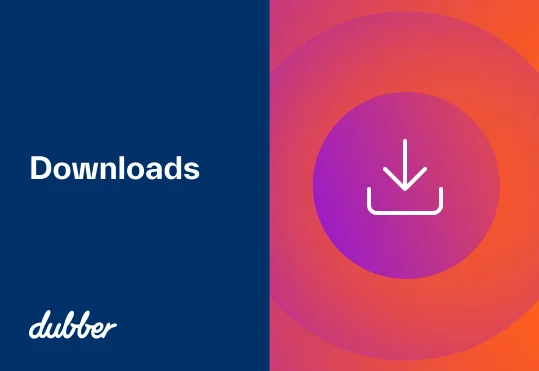
Successful A$110 million Institutional Placement with Strong Investor Support

Capital Raising and Release of Quarterly Report
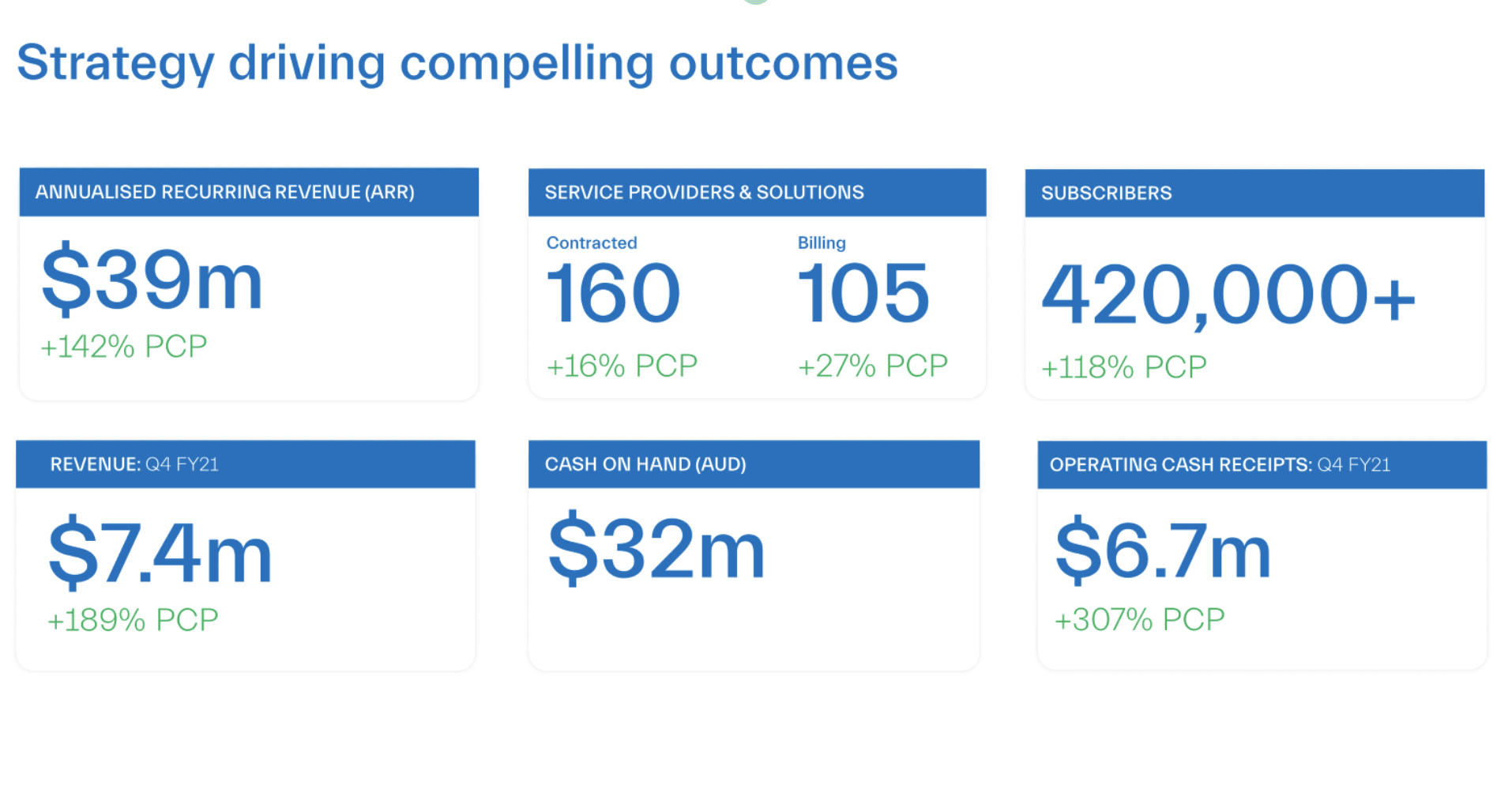
Dubber Corporation Limited (ASX: DUB) (‘Dubber’ or ‘the Company’), the leading global Unified Call Recording & Voice Intelligence cloud service designed for service providers and businesses of any size, today released an update on the Company’s operating focus along with the Appendix 4C for the quarter ended 30 June 2021.
Highlights within the Quarter:
- Revenue increased by 12% ($800k) to $7.4m
- Dubber users now exceed 420,000
- ARR increased 14% ($4.8m) to $39m
- The Company has in excess of $32m cash at bank
- Dubber now a standard feature for every subscriber on Cisco Webex Calling and Cisco UCM Cloud
Growth in all key metrics – Users and ARR
During the June quarter the Company continued to experience substantial growth across all key metrics.
User numbers grew at a record rate for Dubber’s SaaS monthly subscriptions. The Company announced the launch of its Foundation Partner Program, with Cisco’s Webex Calling and UCM Cloud platforms as the first such partner. Foundation Partners will embed Dubber services within their offering as a standard and in-built feature – from which both Dubber and the partner then benefit from upgrading users to richer functionality and product offerings. Accordingly, Dubber’s subscriber numbers have significantly expanded in this program, and for reasons of both consistency and commercial sensitivity, the Company has chosen not to include these numbers at the current time. The increase in subscriber numbers, therefore, relates to standard Dubber subscriptions.
As previously indicated, the key growth metric relating to short term growth is the Company’s Annualised Recurring Revenue (‘ARR’) which has grown by $4.8m, to approximately $39m, continuing a trend established in the March quarter, a milestone period relating to comparative ARR growth on a quarter on quarter basis.


Telecommunications Networks Growth and Yield
During the quarter, the Company continued to expand its footprint of service provider networks along with increasing penetration and revenue yield from its current telecommunication and UC platform partners.
Cisco as a Foundation Partner
During the quarter, the Company announced that it significantly expanded its commercial relationship with Cisco. Dubber is now a standard feature of every subscription for Cisco’s Global cloud telephony platforms Webex Calling and UCM Cloud. An entry level service ‘Dubber Go’ is included, at no extra charge, in every subscription enabling individual users to record calls which they alone manage. Customers can then upgrade to extended features such as extended storage, transcription and AI based features or expansion to compliance-based capabilities for the entire organization. Cisco provides Dubber a monthly license fee for this capability, which enhances its offering to their end customers.
The benefits for Dubber are significant:
- An accretive revenue stream which enhances rather than competes with Dubber’s fundamental revenue models for Cisco users
- 100% attachment to the network customer base with an increased propensity to uptake additional Dubber products and service subscriptions
- Dubber has direct communication access to end customers for co-marketing as well as via Cisco and its global reseller network
- Cisco Webex calling is re-sold by many of the world’s leading telecommunications carriers, providing Dubber with further opportunities to expand its network footprint
- Inclusion in the world’s leading cloud telephony platform provides the opportunity for ‘network effect’ as both service providers and their customers seek to standardise their core infrastructure services
- The deployment will see Dubber’s user base increase exponentially
Steve McGovern, CEO, Dubber: “Dubber and Cisco share a common vision of the way that voice data will become a critical resource for all businesses and users in the future. Our joint initiatives have significant ramifications for Dubber, notably in the Company’s two areas of primary focus: growing the Company’s ARR and expanding its telecommunications network footprint. Dubber is now a core feature on an important network for many Carriers, providing the opportunity to expand the same functionality to the Carrier’s other networks. This provides opportunities for Carriers to add an important value-added service horizontally throughout their networks, and also provides a standardized experience for users.
This marks a major milestone in increasing the ubiquity of Dubber as the Unified Call Recording and voice data layer for the world’s leading telecommunication and collaboration platforms. We believe that customers worldwide will continue to prepare for, and respond to, increased regulatory and compliance obligations for their businesses in many markets and industry verticals. Embedding Dubber cloud call recording as a standard service will allow customers to meet these requirements, while providing them access to a host of advanced voice data services.”
Foundation Partner Program
The Dubber platform has been designed specifically for large scale availability across telecommunication and cloud communication networks, as opposed to legacy bespoke recording products for enterprises, which have historically been tied to on-premise equipment, capital expenditure and complex call centre environments.
The Company is actively engaged in discussions with major service providers to become Foundation Partners and, as previously disclosed, the Company expects several of its service provider partners to deploy the Dubber platform as a standard feature across their network base as “Dubber Foundation Partners.”
This will provide Dubber large scale customer reach into end user accounts for jointly upselling additional services, including extended storage, transcription, AI insights and more.
Unified Call Recording – the ‘Single Pane of Glass’
The Company has previously referenced Unified Call Recording (UCR) which defines Dubber’s unique value proposition of UCR and voice data at scale. UCR reflects how businesses and individuals work today, particularly through COVID-19 driven ‘work from home’ settings and hybrid work environments.
The Company has previously highlighted an industry trend whereby large global service providers are releasing their own network offerings in conjunction with cloud collaboration platforms like Zoom Phone, Microsoft Teams and Cisco Webex Calling. The Company is experiencing significant demand for these services, driven by its Service Provider partners, particularly in the financial services and healthcare sectors, and primarily in markets like the UK, Europe and North America, where there are immediate needs for compliance solutions across distributed workforces.
The ability to capture recordings and voice data across multiple networks, and have them managed in a single environment, the Dubber Voice Intelligence Cloud, is a compelling proposition which should underpin and accelerate the Company’s growth.
Continued Integration of Acquired Companies:
Dubber has successfully integrated the acquisitions of Speik and Calln, both of which continue to demonstrate strong ARR retention and growth. These acquisitions have not only provided outstanding development staff but have provided Dubber with key additional technology capabilities as seen in the recent debut of Dubber PCI Comply, based on core Speik technology.
Financials
As required by LR 4.7C.1 to 4.7C.3, expenditure amounts for the quarter ended 30 June 2021 on the Company’s activities on R&D, operations, advertising and marketing, personnel and administration are as contained in the Appendix 4C accompanying this report. Operating costs include $1.869 million pre-paid for cloud services, a non-recurring expense, resulting in a significant discount to normal cost structures for such services. The amount disclosed in section 6.1 of the Appendix 4C is for executive and non-executive director remuneration for the quarter, including superannuation.
Cash receipts for the quarter were $6.7m, in line with expectations from the Company’s ARR and revenue recognized during the quarter. The Company’s ARR is calculated as the next 12 months of subscription revenue net of any incentives.
For example, an agreement signed in July may have a first billing date of September in which case the ARR would be 10x monthly subscription revenue. Dubber’s customers are predominantly service providers, which operate on varied payment terms, which can result in cash being received a further 60-90 days from billing. As a result, the ARR to revenue and cash receipt cycle can be across multiple quarters.
Steve McGovern, CEO, Dubber:
“The Company is very pleased to have continued its growth trajectory at a level established in the previous quarter. We are now one year into a five-year plan that is heavily focussed on expanding its network footprint, increasing ARR and developing revenue generating products and services which can be deployed at scale as a service directly from voice networks.
Our goal for the first year was to double the size of Dubber’s business – from a base of approximately $15m ARR and 190,000 subscribers, which the team has accomplished and exceeded. The opportunities for take up of the Dubber platform, both at a Service Provider and an end user level, have also been accelerated against a landscape where there are multiple key drivers.
The widespread movement to cloud infrastructure has been brought forward by the effects of the global social and economic requirement for working from home. Additionally, the communications sector has quickly expanded to meet these requirements, particularly with the prevalence of Cisco Webex, Microsoft Teams and Zoom services. Traditional Service Providers in turn are seeking to enrich their cloud offerings both in line with, and competing against these offerings and, finally, there is an urgent need for the extension of compliance, and customer/employee experience capabilities by enterprises at all levels.
Service providers have both an incentive and the means to deliver these capabilities, and Dubber is uniquely positioned to provide unified call recording and voice data capture services as part of this transition. All of these trends reinforce our view that the ability to turn calls into AI-enriched data, will be a standard feature for every phone in the future.
Dubber is incredibly well placed to become the de facto global provider of voice data through its unique cloud platform, partnered with the world’s leading service providers and cloud team collaboration providers.”
This ASX release has been approved for release to ASX by Steve McGovern, CEO & Managing Director.
About Dubber:
Dubber is unlocking the potential of voice data from any call or conversation. Dubber is the world’s most scalable Unified Call Recording service and Voice Intelligence Cloud adopted as core network infrastructure by multiple global leading telecommunications carriers in North America, Europe, and Asia Pacific. Dubber allows service providers to offer call recording for compliance, business intelligence, sentiment analysis, AI and more on any phone. Dubber is a disruptive innovator in the multi-billion-dollar call recording industry, its Software as a Service offering removes the need for on-premise hardware, applications or costly and limited storage.
For more information, please contact:
InvestorsSimon Hinsley simon.hinsley@dubber.net +61 (0) 401 809 653
MediaTerry Albersteinterry@navigatecommunication.com.au+61 (0) 458 484 921
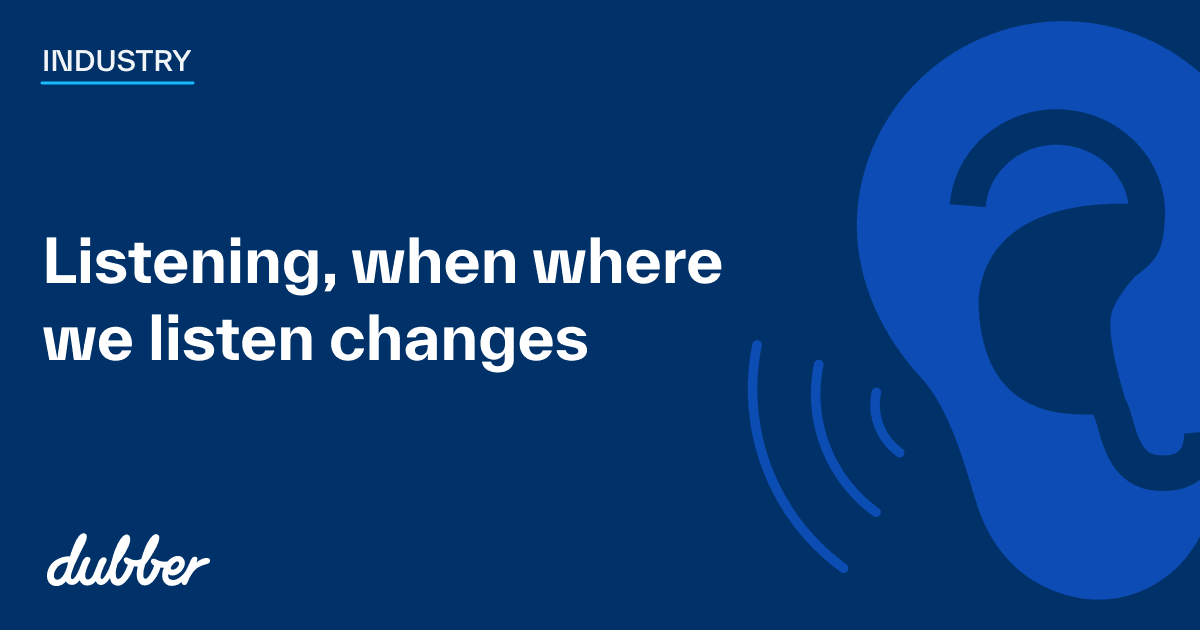
Ending not knowing in financial services
Two aspects of the 2020 pandemic lockdown transformed the way financial institutions handle compliance.
First, Bankers and others in the finance sector stopped interacting face-to-face with customers. An industry that relied on face-to-face interaction and in-person transactions had to find new ways of working.
Second, employers sent staff home to work. Within days employees equipped their home offices with suitable devices and fired up their broadband connections. Video conferencing tools like Zoom, Microsoft Teams and Cisco Webex moved centre stage.
It took some doing. Before lockdown the finance sector had plenty of digital capability. Parts of the industry had been online for decades.
Yet most video interaction focused on internal use. If you could find video conferencing anywhere in a financial institution, chances are people were using it for internal meetings.
Despite no-one anticipating a worldwide pandemic, the sector pivoted. Those inward-looking cameras and microphones now face customers. Businesses moved further online. Like everyone else, compliance staff adapted to life where many people no longer work from an office.
Unsurprisingly this switch brought new compliance challenges.
How do you authenticate a client who wants to give transactional instructions in a Zoom call? How do you know what is being said when it is being said outside of your traditional call center and phone connections? What does quality assurance look like in this new world? Is it possible to reconstruct a transaction from end-to-end across multiple end-points? How will you prove your KYC obligations?
At the same time, customers started to assert their preferred means of communication more strongly. For some that’s Wechat. For others it’s Teams. And others use Whatsapp.
And, while customer confidence in transacting digitally grew exponentially, the primacy of voice remained unchanged. Today, voice remains the preferred means of communicating for any crucial transaction or conversation.
This is where unified voice recording shines. It captures and records any conversation that takes place over any network or channel. It works with telephony, messaging or video conferencing technology.
Because it lives in the cloud and captures voice at the network level, financial services professionals can use unified call recording anywhere.
Unified voice captures working from home calls in the same way it captures calls made at the office. Best of all, it pulls together data from multiple conversations made through multiple channels.
Once captured the information sits in a single central repository that is accessible from anywhere. There’s a clear trail for managers and compliance professionals to follow.
While technology connected us, it didn’t end not knowing. Our ability to listen and collect data was further limited, amplifying an existing problem: not knowing.
Not knowing what someone said and when they said it. Not knowing if the people concerned fulfilled all their obligations.
As we continue to connect in new ways, we also need to learn to listen in new ways. And Unified Call Recording fueling Voice Intelligence is a critical part of the answer.

